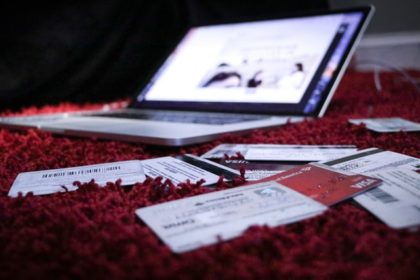
Article written by Denis Pokani Mitole, Candidate Attorney, checked and released by Charlotte Clarke, Partner at Schindlers Attorneys
20 October 2021
Introduction
South Africa recently clocked 500 days under lockdown from the ever-present threat of the Coronavirus (“Covid 19”). The country will soon come out of lockdown, and most restrictions will be removed. While the wearing of facemasks would have become normalised, shopping malls, banking halls and airport lounges will soon fill up to their full capacity. Many will start looking for employment, seek to own that favourite car through hire purchase, while others will finalise securing that bond. It is at this point that many will realise these were only utopian dreams – they were blacklisted. The rental-arrears they entered into over the lockdown from being unemployed, that they had wished would go away, the instalment on the clothing account they fell behind on, and many other payments they could not make, led them into an abyss of debt. As the grim reality sinks in, the nightmares will begin. The realisation is that while the lockdown regulations that were carefully drafted to protect South Africa and its people from dire financial stress, those who lost jobs, the errant payers alike, will soon not offer that protection from their creditors. What then?
Blacklisted?
If you have ever bought anything on credit, there is likely a credit report on you created by a credit bureau like Transunion. A person is considered blacklisted when they have a record of non-payment of outstanding debts that eventually fall into arrears. According to Transunion, this misleading term that carries a negative connotation reflects old days when credit bureaus only kept bad information. Today credit bureaus hold credit records – both good (when your debts with a credit provider are managed well) and bad debt, where the converse is true. The credit information is then released during a credit check, while opening a clothing account, getting new employment, buying that brand new car on loan or when applying for a mortgage. In fact, now credit checks can be done almost by anyone for almost anything. A credit report may contain any unpaid instalments, credit applied for in the preceding 24 months and Court records of credit judgments against you.
But what if I buy cash?
It means you have no credit record, and therefore it is too risky to extend any credit to you, no matter how small an amount. Credit history or financial history is recommended for those advancing in life. With it comes the recommendation to manage the accounts well.
POPIA, PAIA, Credit Bureaus and Third-Party Access to Credit Data
The Promotion of Access Information Act (“PAIA”) and the Protection of Privacy Information Act (“POPI”) came into effect in March 2001 and July 2021, respectively. POPI provides for and regulates the lawful processing of personal information, while PAIA provides for and protects the right to access of information held by the state or any person when such information will assist in the protection of rights. In addition, the National Credit Act, 34 of 2005 (“NCA”) provides for and allows the collection of credit information, history, or records from different sources for retention, maintenance or removal, including sharing. When applying for credit, the consumer would usually give consent for verification of his/her personal information with credit bureaus for the ultimate users’ assessment of risk in the granting of a credit facility. Third parties are allowed access to the data if they have a lawful purpose as prescribed in section 18(4) of the NCA, which includes for an investigation of fraud, corruption, theft, employment, for credit scores, and to obtain specific consumer information.
What to do when Blacklisted?
First, normalise knowing your credit score. It is as important as medically knowing your blood type or allergies. Enquire about your credit score from a credit bureau. A score could range between 0 and 999, the higher you have placed the better the score. From 486 and below, your rating is considered poor. If your credit score is below an average of 527-582, it is best to find out what debt earned you such a score, getting in touch with the creditor provider(s) with whom you have a bad debt record to arrange repayment of the same. While others advise one starts settling the highest debt to the lowest, others recommend from the lowest, while it is the opinion of this author that you consider spreading the repayments across all debts in appropriate ratios. Sometimes there might be a need to challenge the blacklisting and a legal opinion might be required – a topic for another article. It is reported that South African households are using 75% of their take-home on servicing debt, higher than the Reserve Bank’s threshold of 70%. Household savings are on the decline. This excludes informal credit including from loan sharks which is unsecured and offer higher interest rates. Avoid unsecured loans. Save for the rainy days.
Conclusion
If you are blacklisted, it is not the end of the world. Get professional help either from a professional debt counsellor or a lawyer. Also, speak to your credit providers on how they can assist you in getting your credit score up again. Not taking up any credit is not the solution – borrow and use smartly. Build that credit score. With digitization, anyone can access your information at the touch of a button. Preserve your integrity.
Value
This article discusses what blacklisting is and how to deal with it.

